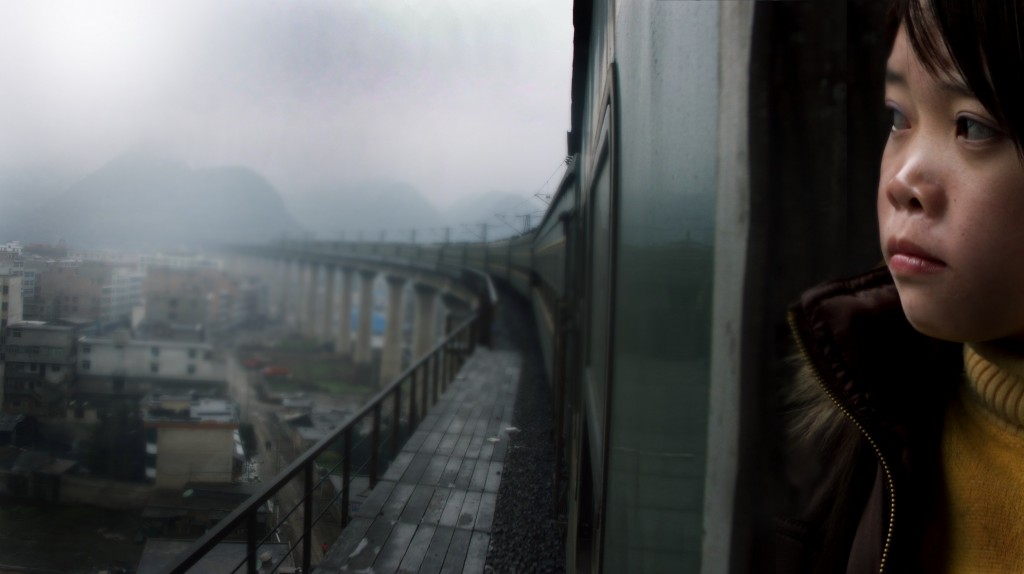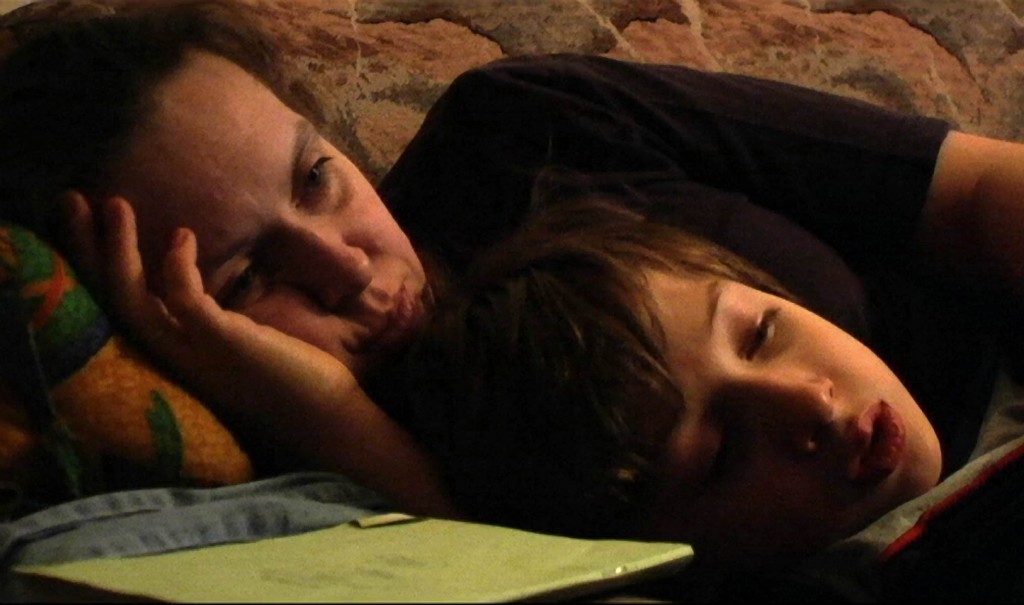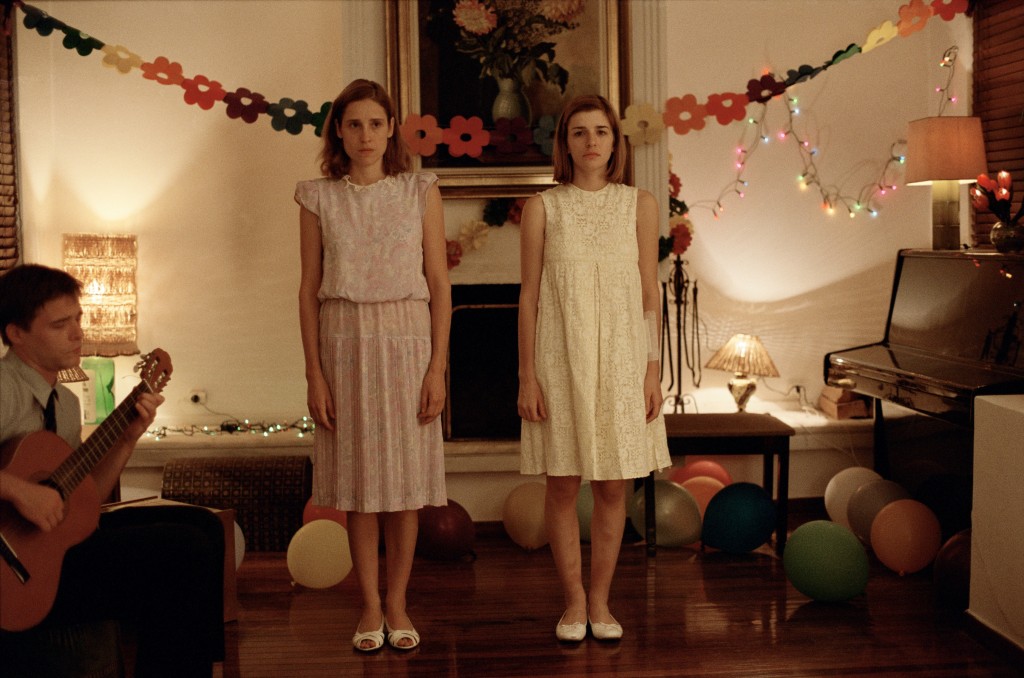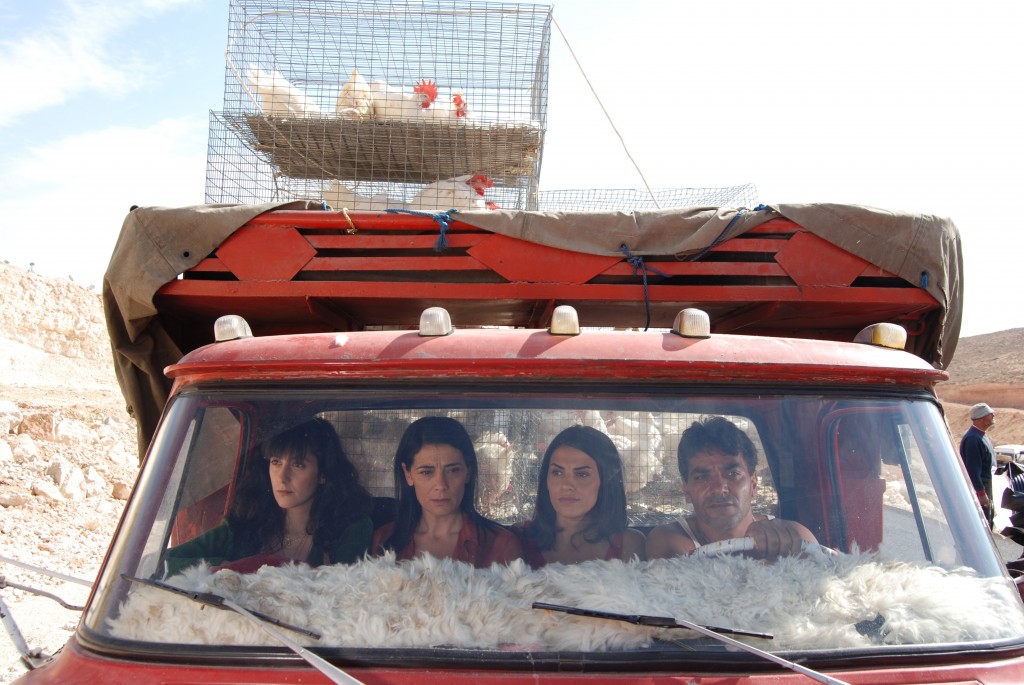Wed 24 Mar 2010
New Directors/New Films Round-Up
Posted by Ethan under Film Festivals
Comments Off on New Directors/New Films Round-Up
Along with the venerable New York Film Festival, one of the highlights of Lincoln Center’s renowned Film Society’s annual schedule is New Directors/New Films, a packed line-up of new films from debuting directors or filmmakers with only one or two other credits to their names.
Co-progammed with the film department at the Museum of Modern Art, ND/NF always offers an eclectic mix of titles plucked from all over the world. For the festival’s 39th year, which kicks off tonight and runs through April 4, 27 movies will make their New York premieres at the festival, some of which already have theatrical distribution while others are still making their way through the festival circuit. The former group includes films like I Am Love and Down Terrace, which are scheduled for release later this year, while the latter consists of Sundance darling The Red Chapel and the Cannes award-winner Samson and Delilah.
———————————————————————————————————————–
Of the movies I had the chance to preview before ND/NF launched, my clear favorite is Robin Hessman’s documentary My Perestroika, which examines the thirty-year transformation of the former Soviet Union into present-day Russia through the eyes of five Russians who grew up during those tumultuous times. Hessman’s achievement with the film is finding a compelling way to balance political history with social history; My Perestroika provides a wealth of detail about the broader changes happening within the Soviet government at the time, but always grounds this information in the way it impacted the lives of the five men and women interviewed here. Among Hessman’s subjects are a husband and wife who were members of Communist Youth organizations as children and now teach history at a local public school; an ex-punk rocker who quit the music business and gets by on odd jobs; a successful businessman who has profited enormously from the country’s move from communism to capitalism; and a single mother working hard to put food on the table. While life has taken them in vastly different directions, the thing that unites them is a surprising lack of interest in their country’s current political scene. After living through the upheavals of the ’80s and ’90s–and, in certain cases, participating in some of the biggest demonstrations in favor of democracy–they all appear entirely apathetic about government to the point where several don’t even bother to vote in a major election. My Perestroika clocks in at a swift 87 minutes and, truth be told, it could have been longer. Certain historical events are glossed over and, in reading a timeline included in the press notes, it’s clear that Hessman left out some significant personal details in the lives of her subjects that would have been fascinating to explore. Still, this is an exceptionally good documentary and quite possibly my favorite film of the young year thus far.
Rating: ****
My Perestroika screens on March 25th at 6:15pm at MoMA and on March 28th at 3:30pm at the Walter Reade theater at Lincoln Center. A theatrical release date has yet to be announced but look for the film on PBS sometime next year.
———————————————————————————————————————–
Going into the festival, the movie I was most interested in seeing was another documentary, Lixin Fan’s Last Train Home, which examines the plight of migrant workers in modern-day China. Spending much of the year away from their families and friends, these men and women only have the chance to return to their homes during Chinese New Year and the sheer number of people taking to the nation’s rails to make that annual trip frequently results in widespread chaos and disorder. Fan centers her film around one particular couple, a husband and wife who left their two children behind in their rural town in order to find work in the big city. The entire family is only reunited over the Chinese New Year holiday and this arrangement has led to significant tension between these parents and their kids, particularly their rebellious teenage daughter who decides to drop out of school and follow her folks into manual labor. It makes sense for Fan to anchor the film around a specific set of characters, but there’s something artificial about the way this narrative unfolds. I don’t mean to suggest that the director is staging scenes and feeding her subjects lines, but the family seems ill-at-ease on camera and, as a result, their conversations take on a forced, stilted air. The movie’s most memorable sequences occur at the jam-packed stations and on the train itself, where the camera wanders the packed aisles and we get to hear from some of the other migrant workers making their way back to their villages. Perhaps that should have been the film’s approach all along–jettison the focus on one family and open it up to everyone riding that last train home.
Rating: ***
Last Train Home screens on April 1 at 6:15pm at MoMA and on April 3 at noon at Walter Reade. The indie outfit Zeitgeist Films will release the movie in theaters later this year.
———————————————————————————————————————–
Straddling the line between fiction and documentary is Northless, the impressive debut feature from Rigoberto Perezcano.  A slice of Dardenne brothers-style social realism, the movie tells the story of a young Mexican laborer trying to cross the border into the U.S. in search of work. After being captured during his first attempt, he’s released into the teeming border town of Tijuana where he finds a job at a small grocery store and befriends the two women that run the place. Even when both of those friendships blossom into something more, he refuses to give up his plan of crossing over. The very definition of a character study, Northless takes great pleasure in capturing the little details of these peoples’ lives and all of the actors inhabit their roles with understated grace.
Rating: ***1/2
Northless screens on March 26th at 6:15pm at MoMA and on March 27th at 3pm at Walter Reade. The film is currently without distribution, but here’s hoping it’ll find its way to a wider audience soon.
———————————————————————————————————————–
Calculated for maximum shock value, the Greek film Dogtooth is essentially old fashioned art-house exploitation in the tradition of Pasolini’s Salo and almost anything by Catherine Breillat. Incest, physical abuse and general sadism are just some of the horrors director/provocateur Yorgos Lanthimos visits upon his characters, a truly screwed-up family living in a remote house far removed from the rest of civilized society. The patriarch of this clan runs his household with an iron fist, bringing up his now adult children in complete ignorance of the outside world. In fact, as far as they know, there is no outside world–their lives are defined by the man-made walls that surround their compound. The only non-family member that visits the house is an employee at the father’s factory, whom he pays to have sex with his son. Meanwhile, his two daughters like to play games involving anesthesia and his wife keeps their vocabulary “pure” by replacing bad words with more innocuous ones (i.e. “vagina” becomes “telephone”). The film is stylized and relentlessly unpleasant to a fault, but it’s also addictive viewing because you’re never quite sure where Lanthimos is going to take this story. At its best, Dogtooth is a pitch-black comedy about the limits of parental control; at its worst, it’s the art-house equivalent of Grindhouse.
Rating: ***
Dogtooth screens on March 30 at 9pm at MoMA and on March 31 at 6:15pm at Walter Reade. It will be released in theaters this summer.
———————————————————————————————————————–
Bringing up the rear of my ND/NF experience is Dima El-Horr’s admirable, but ponderous drama Every Day is a Holiday, about a trio of Lebanese women en route to visit their imprisoned husbands at a jail far in the desert. But their trip takes an unexpected detour when the driver of their bus is shot, leaving them to navigate the barren landscape on their own. But be warned–this isn’t a survival story a la Man vs. Wild or The Road Warrior. Instead, the film becomes an odd psychological journey through the characters’ fragile emotional states while also touching on the larger conflicts plaguing their country. El-Horr ultimately has a point to make and she makes it effectively–unfortunately arriving at that destination proves slow-going. Perhaps another viewing would reveal layers I missed the first time around, but I can’t say I’m eager to revisit the film again anytime soon.
Rating: **1/2
Every Day is a Holiday screens on March 27th at 5pm at MoMA and on March 29th at 9pm at Walter Reade. The film is currently without theatrical distribution.
Visit the New Directors/New Films website to learn more about the other films showing at the festival between now and April 4.







No Responses to “ New Directors/New Films Round-Up ”
Sorry, comments for this entry are closed at this time.